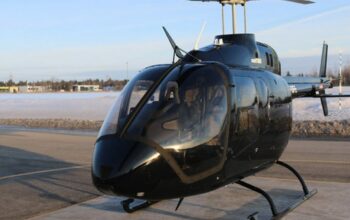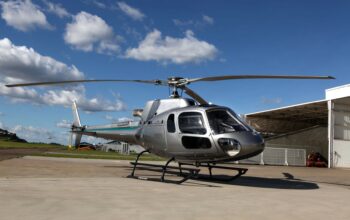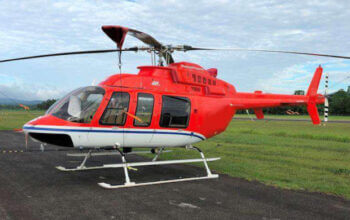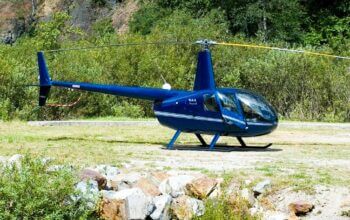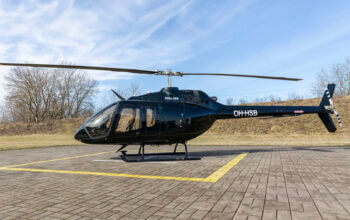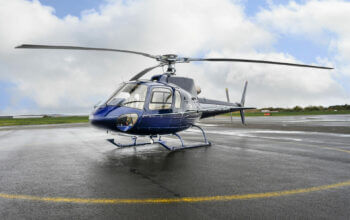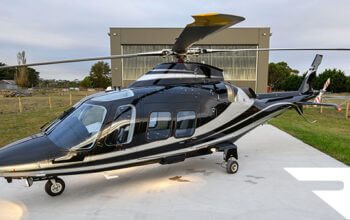Estimated reading time 7 minutes, 12 seconds.
There is no doubt that technology is impacting several aspects of the aviation industry. From the use of biometrics and blockchains to artificial intelligence and drones, new technology is a hotly debated subject.
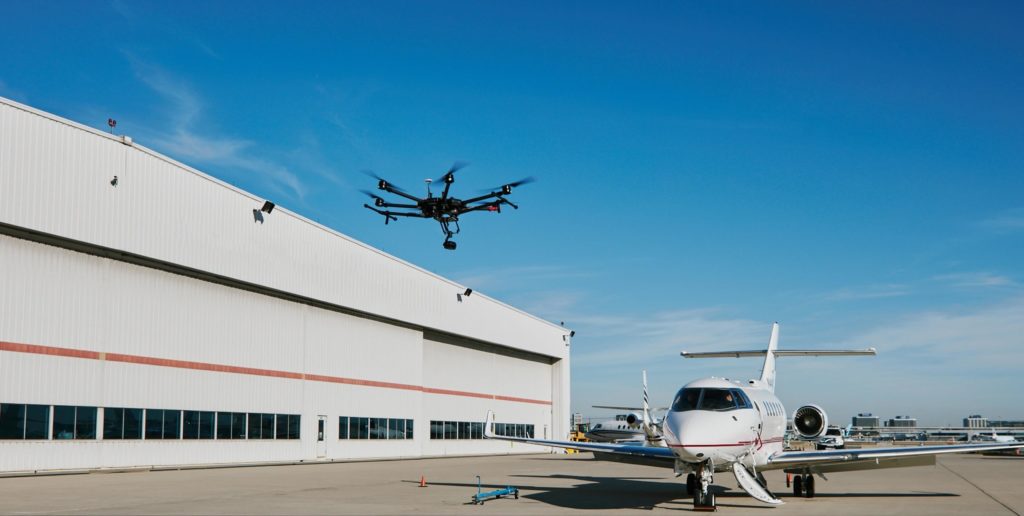
The use of drones to increase the efficiency and safety of aircraft inspections, however, is gaining ground the world over. Currently, Markham, Ont.-based Sugu Canada says it is the only company offering these specialized drone services and related training in Canada.
Safety is an essential but costly and time-consuming effort for airlines. Daily checks, pre-flight walkarounds, and periodic inspections are crucial in ensuring an aircraft is safe to operate. And, every minute spent on the apron or in the hangar costs airlines money.
Enter the drones
“This emerging technology can decrease daily aircraft inspections from approximately four hours to 30 minutes, optimizing an airline’s time, cost and workforce,” said Soreign Jackson, vice-president, Business Development at Sugu Canada.
“Several Canadian carriers are looking at the technology and working cohesively with us. We are completing trial inspections with airlines to be sure we can improve their on-time performance as well as their maintenance scheduling.”
Drones provide operators with a visual inspection toolkit that allows them to gather data on the structural and visual integrity of the plane via thermal infrared scans and red/green/blue or RGB visual inspection scans. The drone’s visual inspection of the skin of the aircraft can identify scratches, dents, lightning strikes and pressurization leaks.
Data uploads in real-time to Sugu Canada’s proprietary software, Sugumapper, for visualization and dissemination, allowing operators to view and respond to safety threats quickly.
Sugumapper provides data sets that can actualize and provide statistics over the lifespan of an aircraft. “This technology is in its infancy and we are very excited to see where it will be 20 to 25 years in the future. By then, we will have information on money saved and complete statistics covering the lifespan of aircraft. To date, there is no log for that,” explained Jackson.
Following a recent addition to the Canadian Aviation Regulations (CARs) requiring a person or remote pilot to monitor all phases of drone flight, Sugu Canada developed a mobile app. The app allows users to fly the drone from their mobile device while viewing a live video feed.
“Operators can also chat with other users through the app,” Jackson said of the evolving tech.
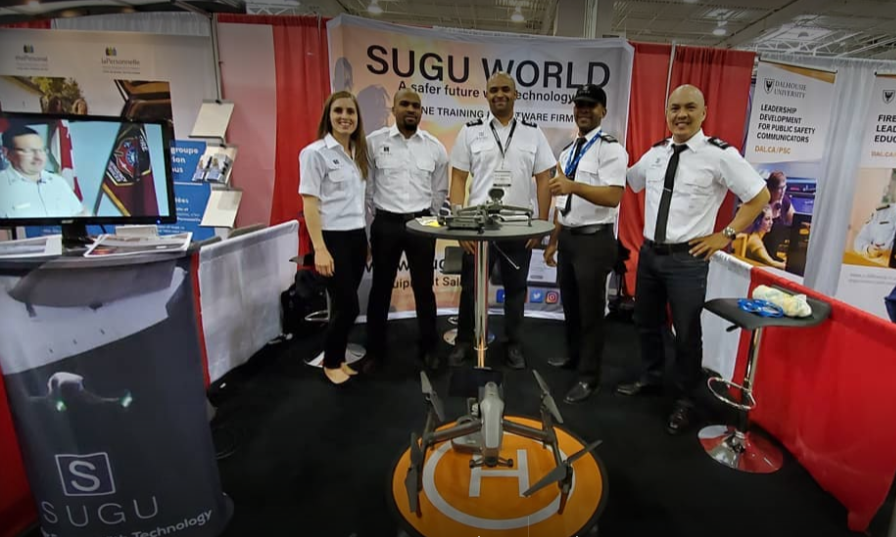
About Sugu Canada
Founded in early 2018 by a group of aviation professionals, Sugu Canada was created to provide time-saving tools for operators performing aircraft inspections. With the looming aircraft maintenance engineer (AME) shortage, Sugu Canada’s senior leadership team developed a tailor-made drone solution for aircraft operators in the corporate, narrow- and wide-body aircraft categories operating out of Toronto Pearson International Airport.
Since then, they have become software developers and offer specialized Transport Canada-approved training for commercial drone operators, with schools in Markham, Toronto and Vancouver.
Today, the company’s partnership with Fire and Emergency Services Training Institute (FESTI) has further positioned the company as a unique training organization.
“FESTI is a part of the Greater Toronto Airport Authority (GTAA), and we are providing training out of their facility for drone operations,” said Jackson. “It is a unique venture, the first in the world where an airport authority has decided to partner with a drone entity to discover how the technology can improve safety.”
FESTI responds to over 5,000 emergency calls per year at Toronto Pearson, including aircraft rescues, structural fire responses and hazardous materials calls, several of which can benefit from the use of drone inspections.
The classroom at Toronto Pearson can accommodate 100 to 150 students. Classes typically consist of aircraft mechanics, public safety officials, firefighters and civilians. Sugu Canada is the only training school in Canada to provide training for aircraft drone inspection services, remotely piloted aircraft systems (RPAS) and unmanned aerial vehicle (UAV) certification training recognized by Transport Canada. The company adheres to Canadian Aviation Regulations and aims to improve drone training standards in the Canadian aerospace sector.
“Providing quality training is why we started the school,” said Jackson. “We moved from solely providing aircraft inspections into training individuals because we wanted to keep the quality of the data reading up to par. Training on our software ensures that those using our tools are doing so safely and meeting government standards. Our instructors are Transport Canada certified to conduct flight reviews.”
The future of aviation
“I do think this is the future of aviation,” he continued. “Drones allow people to do their jobs better, and it’s a good thing at the end of the day to have this progress free up resources. When pilots perform their walkarounds, there are no checks and balances. In the future, they can use their tablet and inspect the aircraft with a drone, then go outside and check anything the drone picked up.”
Sugu Canada is focused on advancing aircraft drone inspection technology.
“The key is to operate drones safely and have a regimented organization, such as an airport authority, to help push technological solutions forward,” said Jackson. “Our solutions will not only help maintenance personnel but also pilots perform their duties at a faster rate, by optimizing time and efficiency with 99.9 per cent accuracy (with pre-planned drone surveys). As a commercial pilot, I am very excited about the future and look forward to seeing the technology used in the assembly line and at the gate.”
Tania Moffat is a freelance writer, editor, publisher and photographer. She has worked in the publishing industry for the last 15 years on a wide variety of B2B and consumer publications, both in print and online. You can connect with her at info@chiccountrylife.com.

